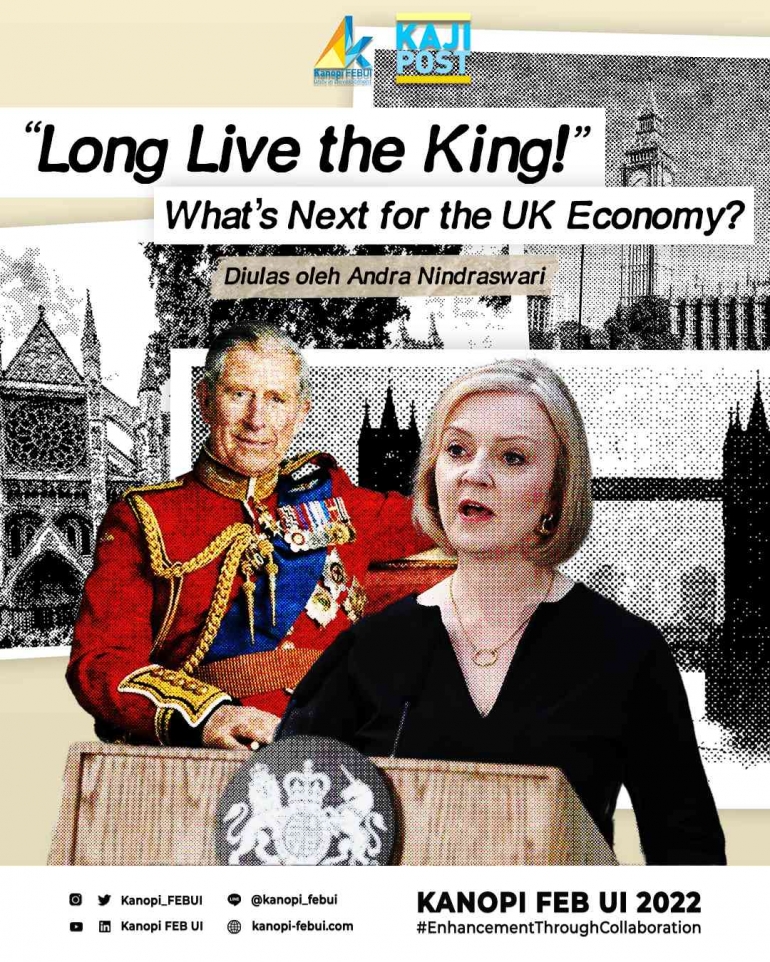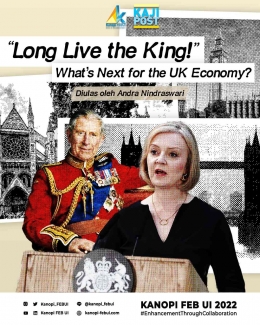About three weeks ago, the world was startled by the passing of Queen Elizabeth II. With the British economy already battling with soaring prices and facing the fear of recession by the end of year, this subsequent period of national mourning has dealt a further blow to Britain's already fragile economy. After the previous Prime Minister Boris Johnson was linked to a series of contentious and ethical scandals, Liz Truss was chosen as the country's new prime minister just two days before Queen Elizabeth II passed away. From now on, King Charles III will have to take charge of this difficult situation as Head of State and give a sense of stability and continuity with the same presence that his mother did throughout her 70-year reign. First, let's take a look at how the UK economy is doing recently.
Is the UK Bracing for Recession?
Prices have increased sharply over the last year domestically. After reaching 10.1 percent in July, the highest level since February 1982, inflation decreased slightly in August but still remained at 9.9 percent on an annual basis. Rising food prices made the biggest contribution, indicating that inflationary pressures are mostly spreading beyond energy. Particularly, Russia's invasion of Ukraine also resulted in significant spikes in gas and food prices globally.
As the FED continues to increase its interest rate to fight US inflation, many central banks in the world seem to have also been tightening their monetary policy. Generally, a country with a higher interest rate will increase the value of its currency relative to other countries with lower interest rates. To curb inflation and maintain the value of its currency, The Bank of England increased its key interest rate from 1.75 percent to 2.25 percent during its meeting in September 2022, marking its seventh consecutive rise.
Higher interest rates also makes the cost of borrowing more expensive. Lenders may benefit from inflation where more individuals will require credit to buy goods and services that are more expensive. After the BoE stated that it will not hesitate to change interest rates to bring back inflation to its targeted rate, the yield on Britain's ten-year Gilt increased beyond 4%, marking its highest level since February 2010. However, credit risk may also be higher for lenders during times of strong inflation.
On the other hand, it may also be a burden for borrowers since an increase in inflation is rarely followed by an increase in wages. Real wages in the UK decreased by 3% annually in the most recent quarter, reflecting the value of employee compensation after taking inflation into account. According to the Office of National Statistics, average pay increased by 4.7% from April to June, excluding bonuses, but the cost of living is rising even more quickly and surpassing income growth. Tighter monetary policies and a decline in real earnings are making it more difficult for people to afford debt.
Financial markets have been unstable, and people's risk taking has decreased as a result of these changes. The effects of high inflation can already be seen: economists are becoming more gloomy about the UK economy and believe that a recession is now far more likely than not. Even The BOE anticipates a recession to occur in the fourth quarter and persist until the first few months of 2024.
UK Inflation: Does Brexit Come Into Play?
Adam Posen, a former Bank of England policymaker, believes that Brexit's effects on immigration and the labor market are responsible for 80% of the UK's high inflation rate, which is the highest of any G7 nation. However, Brexit supporters deny that the present price increase is related to stricter immigration regulations; some believe that the regulations aren't even strict enough.
With the end of free movement, there has been a decrease in the number of immigrants coming to the UK to work in the accommodation and hospitality industry. The new system seems to be succeeding in its goal of tipping the scales in favor of immigrants who have a higher paying and hold jobs requiring greater levels of expertise. Partly as a result, vacancies are prevalent in several relatively low-paying industries and occupations.
For example, the UK care sector which is considered a low-status, low-paid profession is currently having a significant employee turnover. Adult social care had a 5.9 percent vacancy rate in May 2021. This year, it got to almost 10 percent in March. Due to a lack of government financing, social care staff has been experiencing a shortage, which has been made worse by the drop in EU immigration since Brexit.
It is also crucial to keep in mind that employers are unlikely to see a rise in real salaries throughout the whole economy if their only response is to raise nominal compensation without simultaneously raising productivity. This will result in changes to relative earnings, with employees in areas where migrant competition has diminished benefitting and those in other sectors losing, since prices will also need to increase (Portes, 2021).







